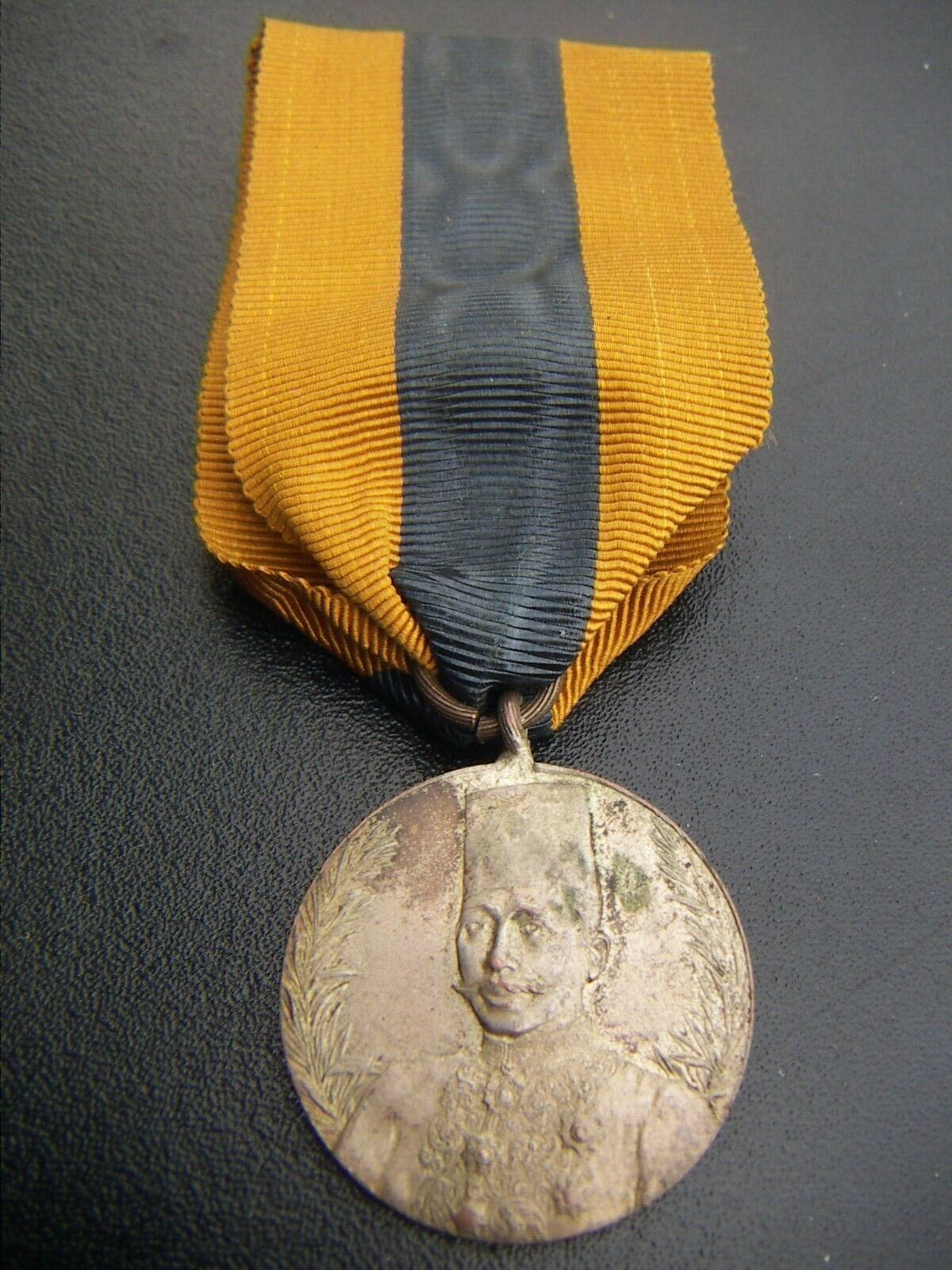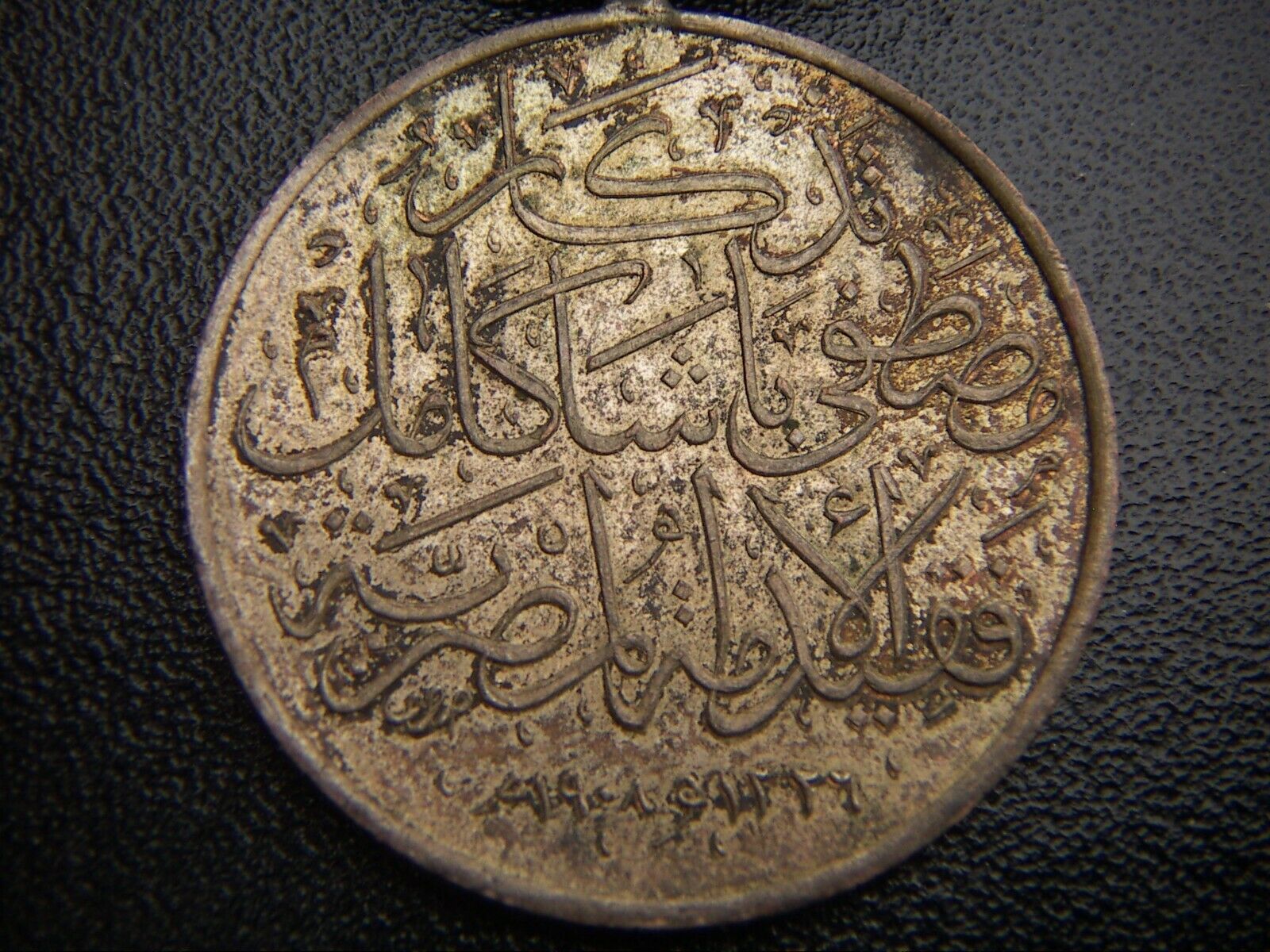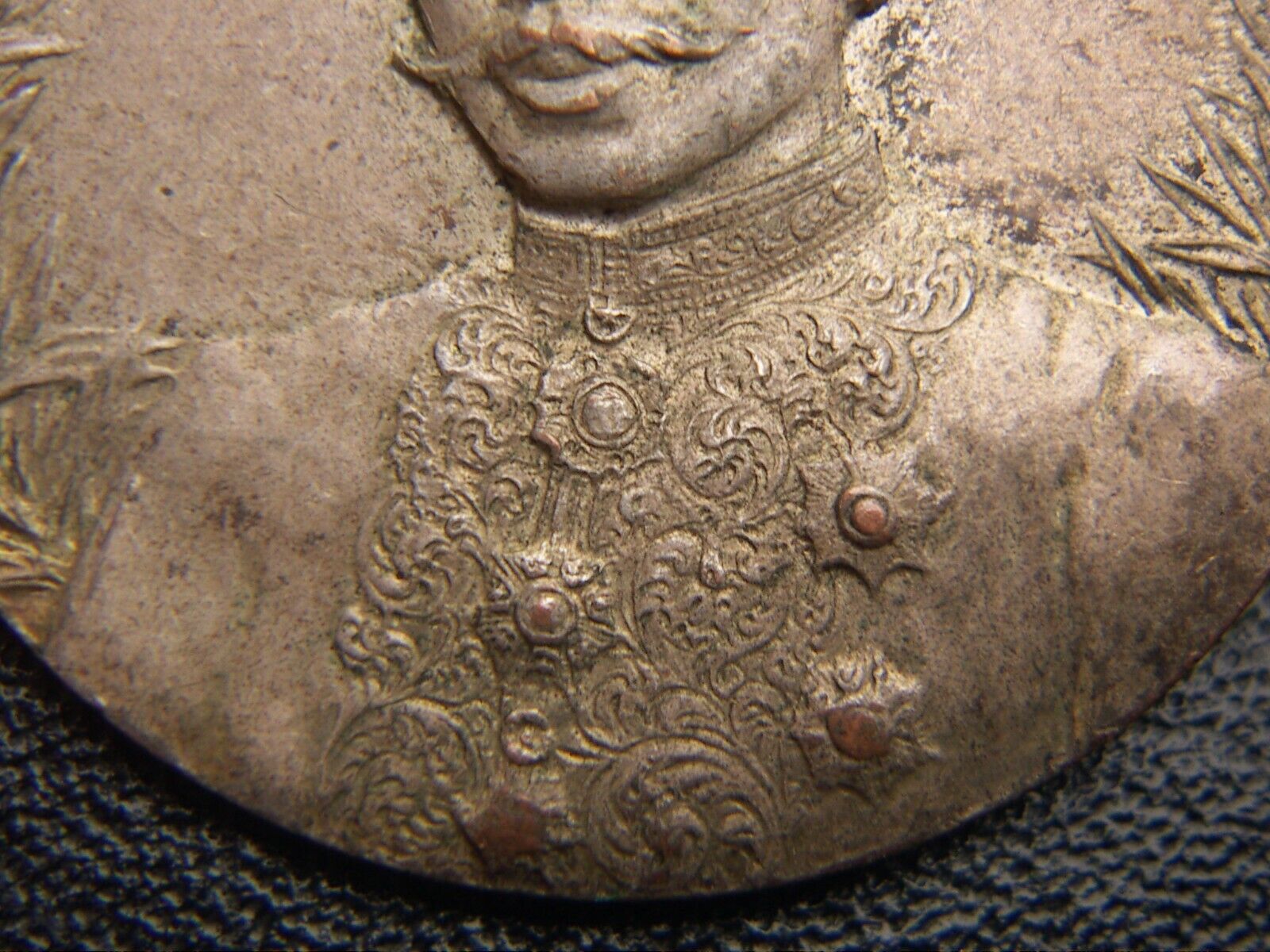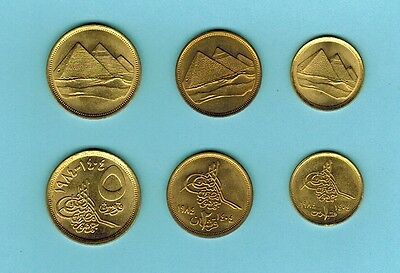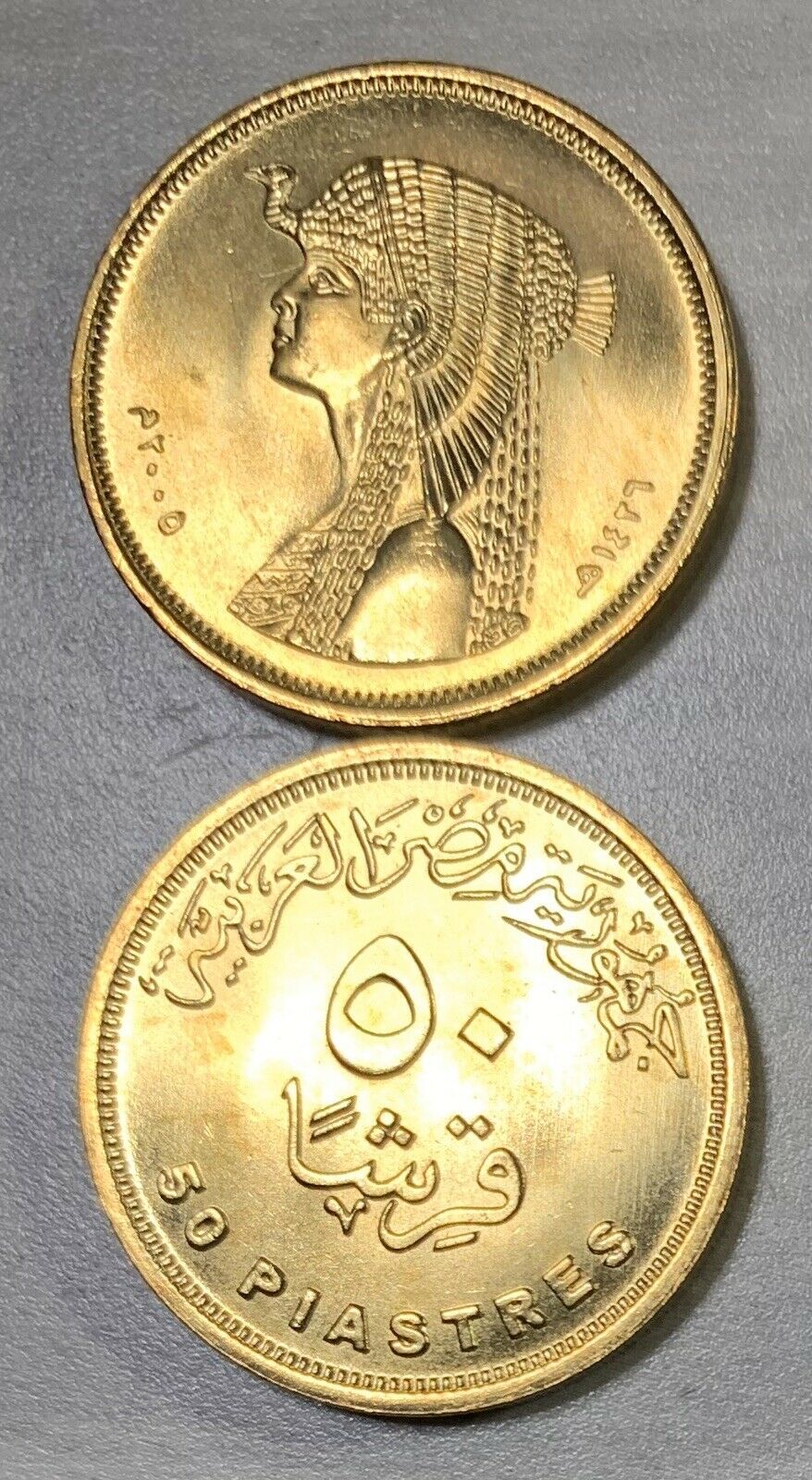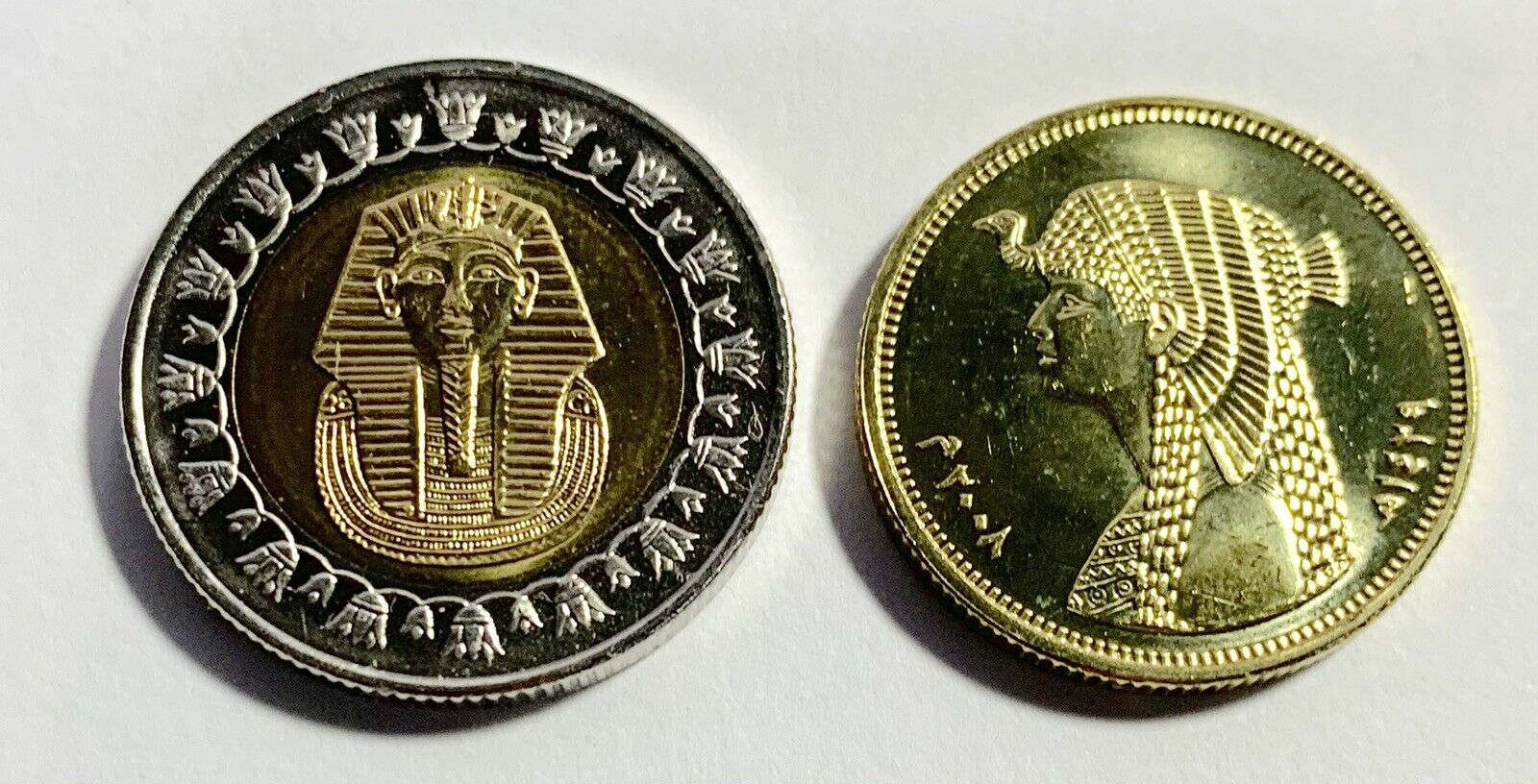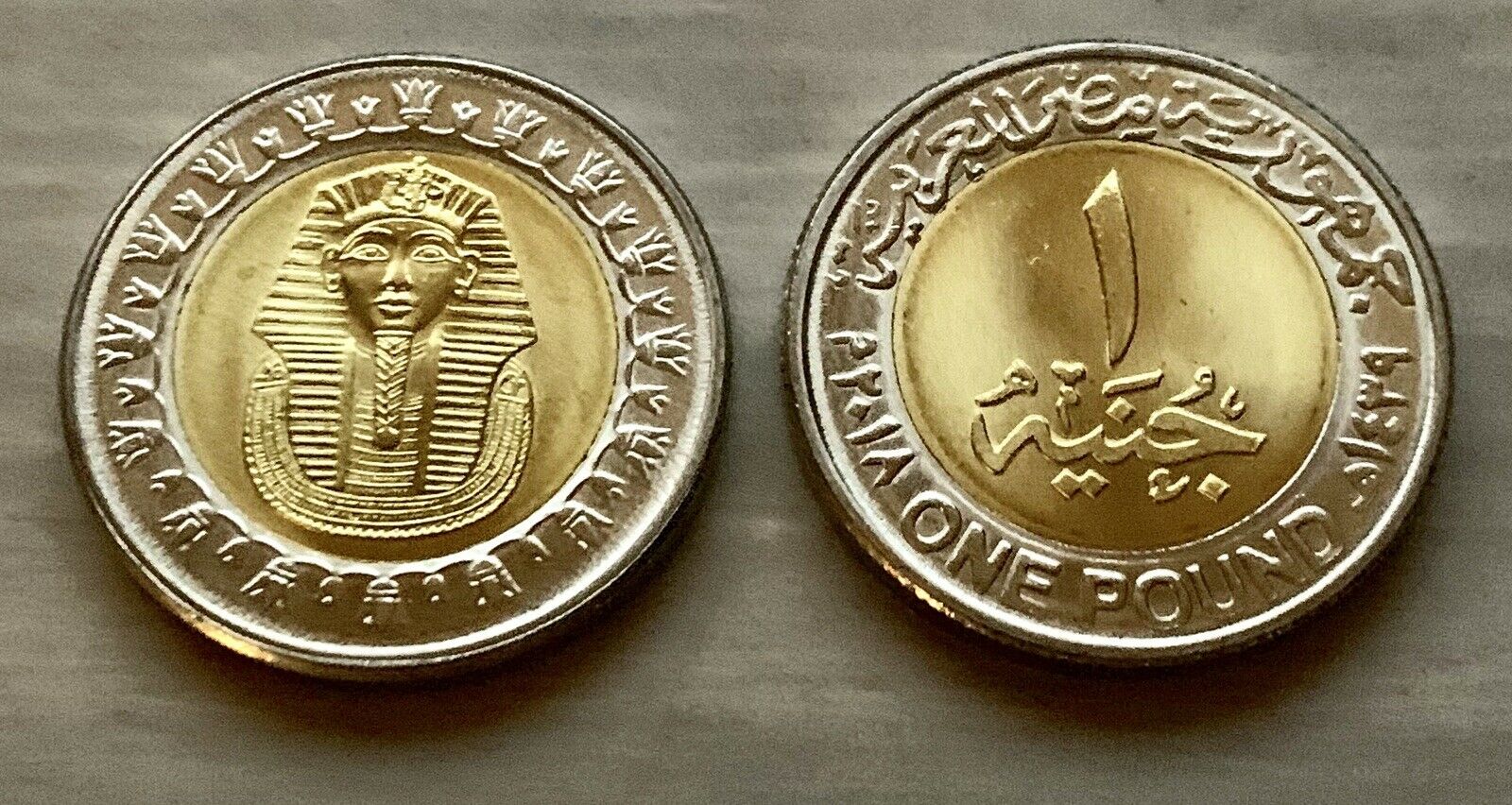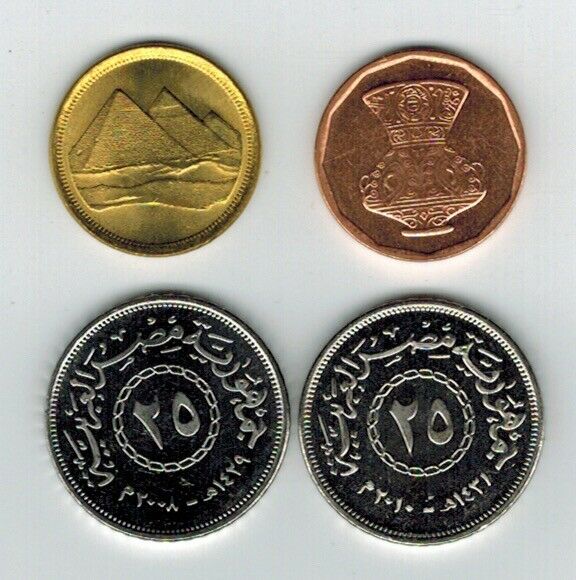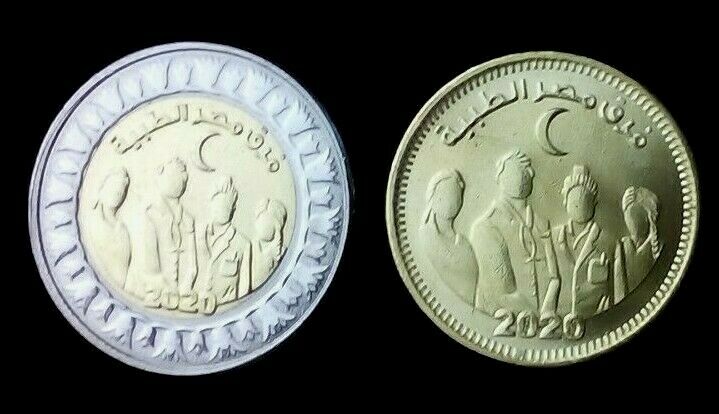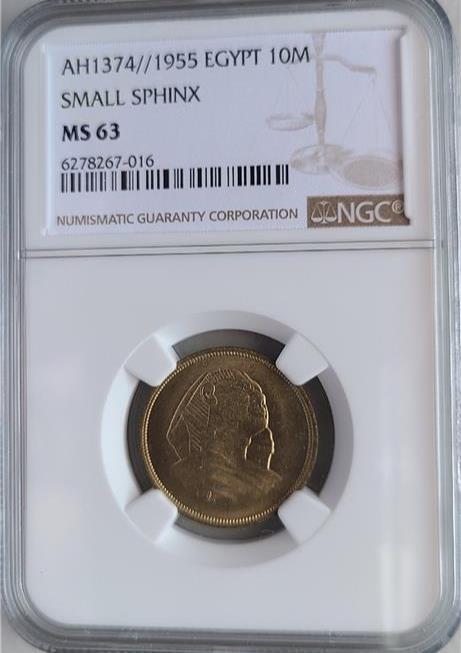-40%
AH 1326 AD 1908 KHEDIVE EGYPT MISR OTTOMAN TURKEY MUSTAFA KAMIL PASHA MEDAL RARE
$ 409.2
- Description
- Size Guide
Description
AH 1326 AD 1908 KHEDIVE EGYPT MISR MISIR SUDAN OTTOMAN EMPIRE TURKEY MUSTAFA KAMIL PASHA MEDAL RAREMustafa Kamil Pasha
(Arabic language: مصطفى كامل, IPA:[mosˈtˤɑfɑ ˈkæːmel]) (August 14, 1874, Cairo, Egypt – February 10, 1908, Cairo) was an Egyptian lawyer, journalist, and nationalist activist. The son of an Egyptian army officer, Kamil was trained as a lawyer at the French law school in Cairo.
The son of an Egyptian army officer, Kamil was trained as a lawyer at the French law school in Cairo and the Law Faculty at the University of Toulouse
in France. As a passionate nationalist, he supported Egypt's khedive
, Abbas Hilmi II
, who strongly opposed the United Kingdom'
s occupation of Egypt
and Sudan. He also sought co-operation with France and the Ottoman Empire
, but later he gradually grew more independent of outside backers, and appealed mainly to the Egyptian people to demand the end of the British occupation. He also called on Khedive Abbas to grant constitutional government to his subjects.
In 1900, Kamil founded the newspaper Al-Liwa' ("The Standard") as a platform for his views and utilized his skill as both a journalist and lawyer. He also founded a boys' school open to Egyptian Muslims, Christians, and Jews. His cause was strengthened by the
Dinshaway
Incident
in June 1906 in which four peasants were hastily tried and hanged for having assaulted uniformed British officers who were shooting pigeons in their village.
He was supported strongly by Mohammed Farid, a prominent member of Egypt and Sudan's aristocracy. With Farid's assistance, Kamil founded the National Party in December 1907, two months before his death. His funeral was the occasion for a massive demonstration of popular grief. Farid, who spent his last penny supporting the country's national liberation movement, became the leader of the National Party after Kamil's death.
The mausoleum of Mustafa Kamil (built between 1949–53) close to Cairo's Citadel in neo-Mamluk style is open to the public as a museum, and holds in a side room a display of memorabilia related to him.
Kamil is remembered as a fervent Egyptian nationalist, and an articulate advocate of Egyptian independence. The current Egyptian national anthem (Bilady) is thought to have been inspired by one of Mustafa Kamil's speeches.
- "If I weren't an Egyptian, I would have wished to be an Egyptian," one of most famous quotes in Egyptian modern history, was said by Mustafa Kamil.
Fazlur Rahman Malik argues that even though he was necessarily secular, his nationalism was inspired by an Islamic past. This appears to be the natural conclusion as Egypt had remained under the Islamic Caliphate system for centuries before.
The British often accused him of advocating pan-Islam, and it is well known that he supported the Ottoman Sultan against the Egyptian Government and the British who dominated Egypt in the dispute over Taba in May 1906.
Obverse
;
Portrait of Mustafa Kamil Pasha in an Ottoman Military uniform with Ottoman Medals, Nishans and other Orders.
Reverse
;
Arabic Ottoman Egyptian text " Tezkar-ul Mustafa n/Basa Kamil fekiydul emirul misiriyye 1908 / 1326 "
28mm - 9g
